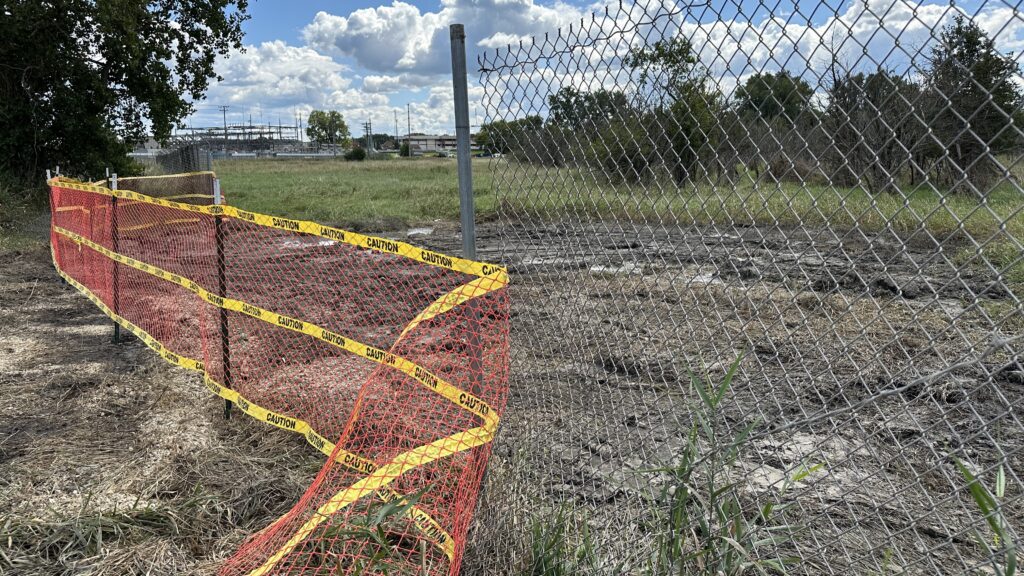
MADISON — Madison Metropolitan Sewerage District (“District”) is providing an update on a sanitary sewer overflow (SSO) that it first reported on Friday, August 22, 2025.
The overflow was the result of a crack that formed in a large sewer pipe running through a District-owned wetland on the grounds of the Nine Springs Wastewater Treatment Plant, adjacent to the Capital Springs State Trail; public access to this area is restricted. Staff were alerted to water bubbling in the wetland on Friday afternoon by a trail user and quickly mobilized. A temporary repair was completed by midday Saturday, and the trail reopened Saturday evening.
Additional review of pumping records and system data indicates that the failure in the pipe and overflow likely started on August 13. Heavy rains the week of August 10 added significant amounts of stormwater and groundwater (inflow & infiltration) to the sanitary sewer system, making the overflow difficult to detect during normal review. It is estimated that 6 million gallons of untreated wastewater were released over 10 days as a result of the overflow, with an unknown portion flowing out of the wetland and entering the nearby Nine Springs Creek.
The District took several actions to address the situation, including:
- Discontinued wastewater flow through the pipe to stop the overflow until the temporary repair was complete;
- Instituted a daily lab sampling and analysis protocol to monitor creek health;
- Temporarily blocked flow through Nine Springs Creek in the affected area to prevent downstream movement of wastewater;
- Began treating contaminated water from the immediate overflow area by pumping it to the treatment plant; and
- Notified Public Health Madison Dane County and Wisconsin Department of Natural Resources, as required by the District’s permit and emergency response protocols.
“While no system can anticipate every scenario, we can be prepared and accountable for how we respond,” says Eric Dundee, the District’s Executive Director. “Our team, equipped with strong maintenance and inspection practices and emergency response training, immediately activated our response plan, notified our public health and environmental regulators, and took the steps needed to reduce impacts.”
The District continues to coordinate with Public Health Madison Dane County and the Department of Natural Resources on additional follow-up actions or monitoring that may be necessary.
The temporary pipe repair completed on Saturday is protective of public health and the environment. District staff will complete a permanent repair in the coming months.
As a local clean water utility, the District owns and maintains a regional system of large sewer pipes that collect wastewater from 24 local communities, including Madison. Residents who see or believe they are experiencing a sanitary sewer overflow should immediately contact the municipality in which the incident is occurring to determine whether it is part of the local sewer system or the regional system. Residents are also advised to avoid contact with sewage.
##
As a regional clean water utility, Madison Metropolitan Sewerage District collects, conveys and treats wastewater for 24 Madison-area municipalities and utility districts, recovering valuable resources in the process. Established in 1930 as a municipal corporation to protect the lakes and streams of the upper Yahara watershed, the District’s mission is to protect public health and the environment for the approximately 435,000 residents and businesses it serves. The District treats about 37 million gallons of wastewater daily at the Nine Springs Wastewater Treatment Plant.
—
EDITOR’S NOTE: Please use “District” instead of MMSD to avoid confusion with the Madison Metropolitan School District and Milwaukee Metropolitan Sewerage District.






